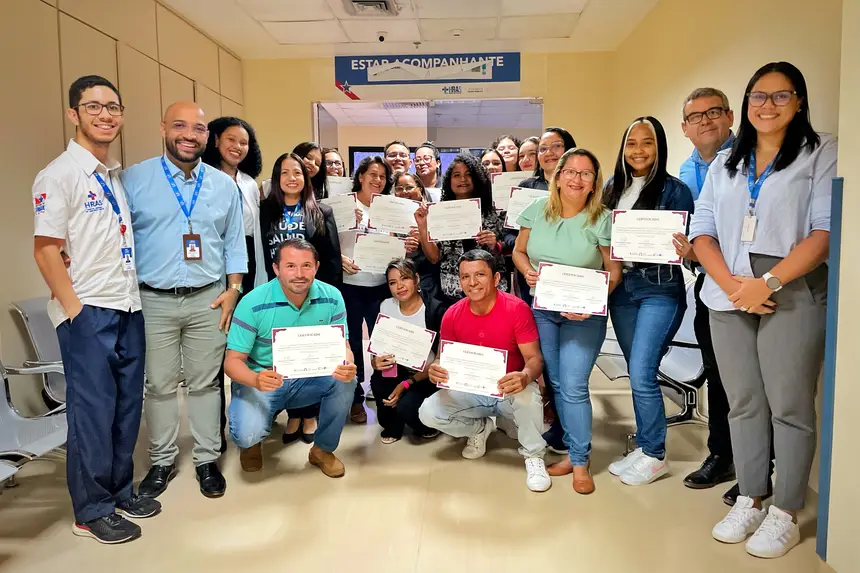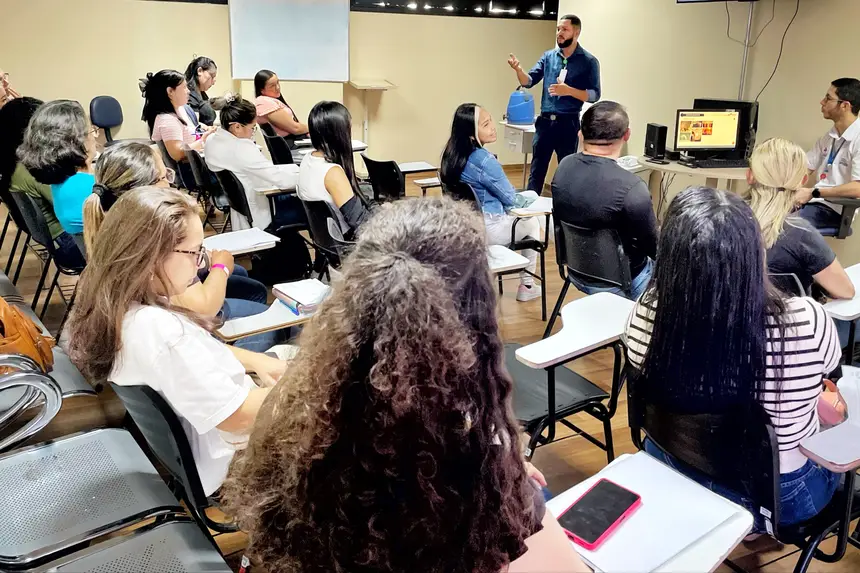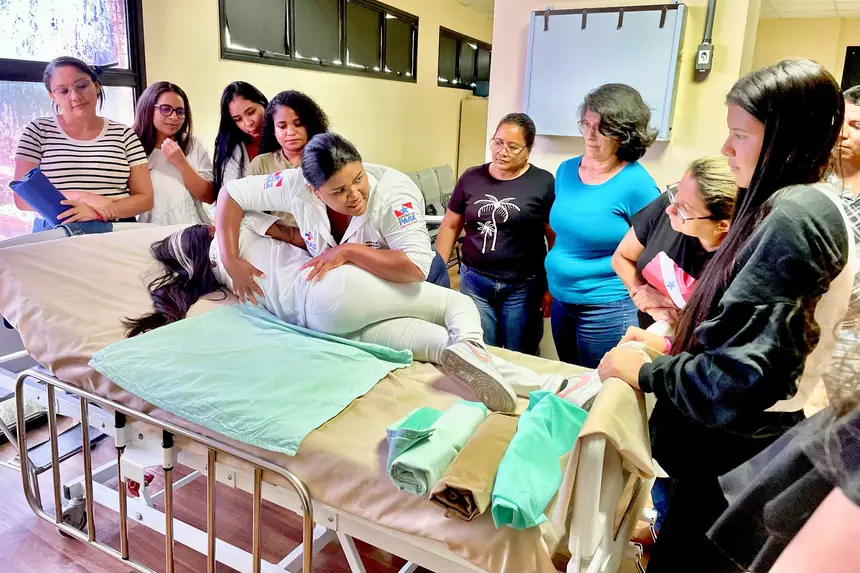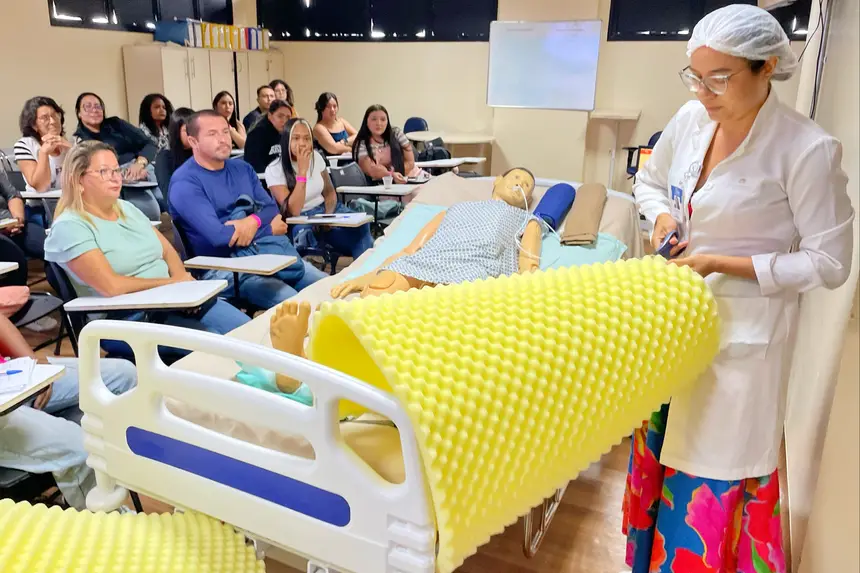Hospital Abelardo Santos strengthens assistance to the elderly and trains another group of caregivers
Training reinforces the commitment of the Government of Pará to comprehensive care for the elderly population, strengthening public policies aimed at the well-being and protection of these individuals

The Dr. Abelardo Santos Regional Hospital (HRAS), in Belém, completed, this Wednesday (19), another class of the Theoretical and Practical Course for Elderly Caregivers. A total of 20 students finished the training conducted by health professionals from the unit itself, which covered topics such as psychological aspects in care, physiotherapy, promotion of well-being, the Statute of the Elderly, among others.
Thamyres Gatti, 30 years old, was one of the participants in the course. For the nursing technician, the initiative will be essential to enhance her care techniques. “My interest in this subject began after an experience at home with my aunt, who has Alzheimer’s and needs special care. Now, I take the opportunity to transform the knowledge acquired into a new job possibility,” she said.

For Márcia Ferreira, 47 years old, the training brought hope for securing a future job. “After this course, I feel that I am prepared to work as a caregiver. I enjoy taking care of people and, now, with all the teachings I received, I see the opportunity to make a difference in this area. I am optimistic and confident that I will soon be working with excellence,” she pointed out.
The elderly caregiver is responsible for ensuring the well-being of the person being cared for, working in areas such as hygiene, comfort, leisure, nutrition, mobility, and health monitoring. Their work aims to ensure the physical, emotional, and social integrity of the assisted individual. Additionally, this professional encourages inclusion and enhances communication between the patient, their family, and the health team.

Opportunity
Conceived by the Humanization Commission (CH), with support from the Permanent Education Center (NEP) and administrative sectors of HRAS, the training occurs annually and is offered free of charge to communities and islands near the hospital. The central objective is to train and provide technical-scientific knowledge that ensures the safety of care, well-being, and dignity of the elderly.
“We envisioned a course that integrated qualified professionals from ‘Abelardo Santos’, such as the multidisciplinary team, composed of specialties like nursing, medicine, physiotherapy, occupational therapy, social work, psychology, and nutrition. Certainly, the participants will leave ready for the challenges of the job market,” assured HRAS's humanization supervisor, Suzane Gonzaga.

According to the Brazilian Institute of Geography and Statistics (IBGE), between 2000 and 2023, the population aged 60 and over nearly doubled in the country, rising from 8.7% to 15.6%. During this period, the fertility rate fell from 2.32 to 1.57 children per woman. It is estimated that by 2070, more than one-third of Brazilians (37.8%) will be aged 60 and over. In Pará, currently, one in ten people is elderly.
The NEP nurse, Jhuly Souza, emphasizes that the training offered by Hospital Abelardo Santos becomes a differential for those seeking to stand out in the market. “Information from the National Household Sample Survey (Pnad) indicates that, in the last three years, the number of elderly caregivers in Brazil has grown by 15%, so qualification makes all the difference in this competition,” she highlighted.
Reference

The Dr. Abelardo Santos Regional Hospital is managed by the Social Institute Mais Saúde (ISMS), in partnership with the State Department of Public Health (Sespa). Recognized for its care for women, children, and the indigenous population, it performed more than 1 million services in 2024, including medium and high complexity surgeries, exams, and consultations, among other procedures.
The structure includes a pediatric, gynecological, and obstetric emergency room open 24 hours, as well as 360 beds distributed among emergency, surgery, clinical hospitalization, Intensive Care Unit (ICU), and Intermediate Care Units (UCIn). It is also one of the main maternity hospitals in the State, performing more than 5,000 deliveries per year, and has a renal therapy center.









